Since April 2023, Sudan has been engulfed in a violent conflict between the Sudanese Armed Forces (SAF) and the Rapid Support Forces (RSF). This war has triggered one of the world’s largest humanitarian crises, marked by mass displacement, severe human rights violations, and urgent humanitarian needs.
Facing a funding crisis for humanitarian aid, UNHCR, the UN Refugee Agency, has been forced to scale back vital assistance once provided daily in neighbouring countries like Egypt, which hosts many Sudanese families. This decision, which UNHCR deeply regrets, deprives tens of thousands of refugees – most of whom fled the conflict in Sudan – of essential medical care, child protection services, and crucial humanitarian support.
Here are five key facts to understand the scale of the crisis in Sudan and why international solidarity must be maintained.
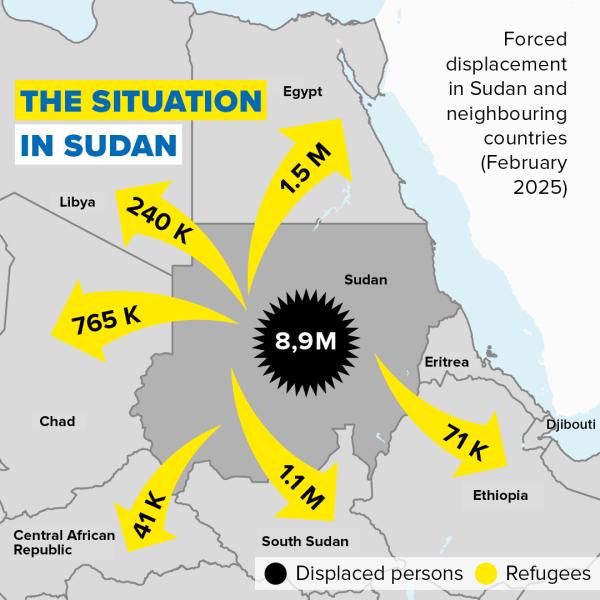
1. Sudan: an unprecedented displacement crisis
More than 12.6 million people have been forced to flee, including 8.9 million internally displaced people. Over 3.7 million people have sought refuge in neighbouring countries such as Chad, South Sudan, Egypt, Ethiopia, and the Central African Republic.
This is the largest internal displacement crisis in the world.
Entire families are fleeing with no resources, arriving at the border areas exhausted, traumatized, and in desperate need of food, water, shelter, and medical care. More than 760,000 Sudanese refugees have sought refuge in Chad, which has very limited hosting capacities.
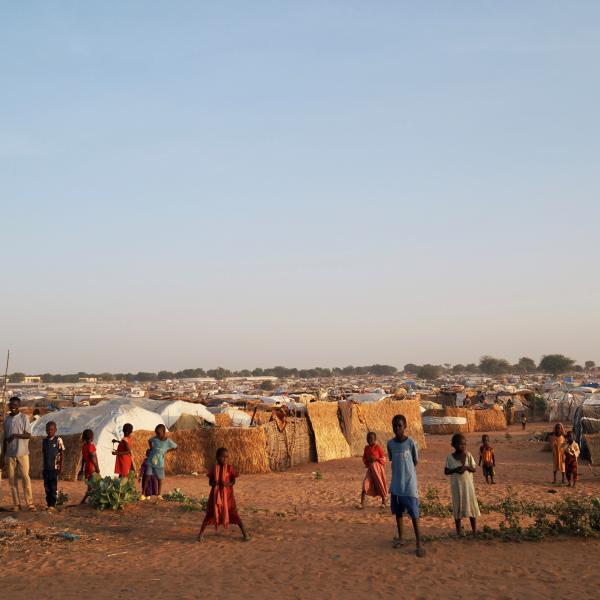
2. A country already marked by two decades of displacement
Unfortunately, this is not the first conflict the Sudanese people have faced. The Darfur crisis of 2003 had already forced more than 4.5 million Sudanese to leave their homes – 800,000 of them sought refuge in neighbouring countries.
Sudan was also home to over one million refugees, the second-largest refugee population in Africa, mainly from South Sudan, living in the states of Khartoum and White Nile. Refugees who fled the crisis that erupted in northern Ethiopia in late 2020 also found refuge in eastern Sudan, while others came from Eritrea, Syria, and the Central African Republic.
Among the newly displaced are refugees who had already been in exile and are now attempting to flee again to neighboring countries or return to an unstable homeland.
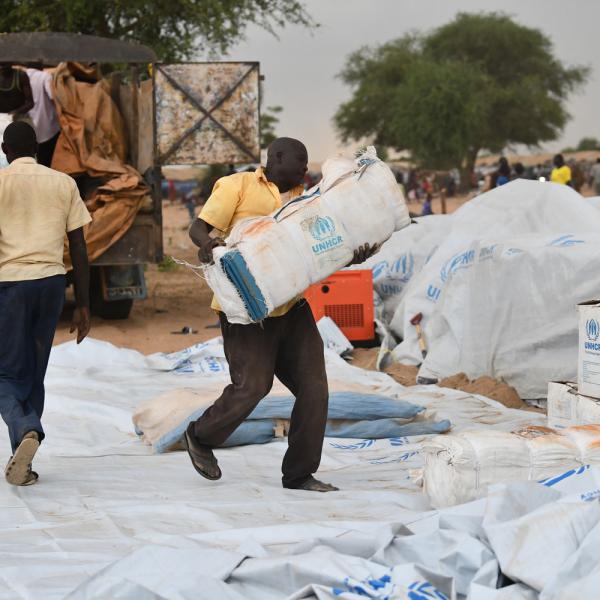
3. Millions of people need humanitarian aid
More than half of Sudan’s population – nearly 25 million people – now requires life-saving humanitarian assistance.
Access to healthcare, clean water, education, and security is severely disrupted.
Infrastructure has been damaged, and humanitarian teams face significant access barriers due to insecurity. In 2024, only 38% of humanitarian needs in Sudan were funded, putting millions of lives at risk.
With the current cuts in humanitarian aid, UNHCR is prioritizing life-saving activities and supporting the most vulnerable groups, including unaccompanied children and survivors of sexual violence and torture. But without urgent increases in funding, even these programmes are at risk.
Due to this funding shortage, UNHCR has suspended all medical treatments for refugees in Egypt, except for life-threatening emergencies. Around 20,000 people have lost access to essential medical care, including cancer surgeries, chemotherapy, heart surgeries, and medication for chronic illnesses such as diabetes and hypertension.
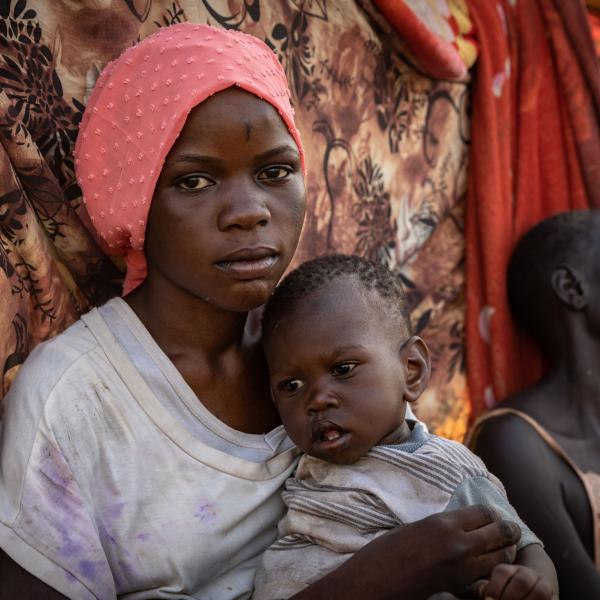
4. Women and girls bear the greatest burden
The conflict in Sudan has been accompanied by a rise in sexual violence. Refugee women face increased risks of exploitation, forced or early marriage, and a lack of access to menstrual hygiene and healthcare services.
UNHCR is urgently calling for action to protect women and girls by ensuring:
- Safe spaces
- Psychosocial support
- Access to healthcare
- Community awareness campaigns
In a context where protection structures have largely been destroyed, international support is crucial to safeguard the safety and dignity of survivors.

5. International support remains insufficient
Despite the urgency, the crisis in Sudan is largely overlooked on the international stage. UNHCR is calling for:
- Increased humanitarian funding
- Open borders for Sudanese refugees
- Stronger diplomatic efforts for a lasting ceasefire
Ignoring this crisis means abandoning millions of people to suffering, hunger, and violence.
How can you help displaced people from Sudan?
Your support can save lives. With your donations, UNHCR can provide:
- Food and water
- Emergency shelter
- Medical care and psychosocial support
Donate today and help families who have lost everything find hope again.
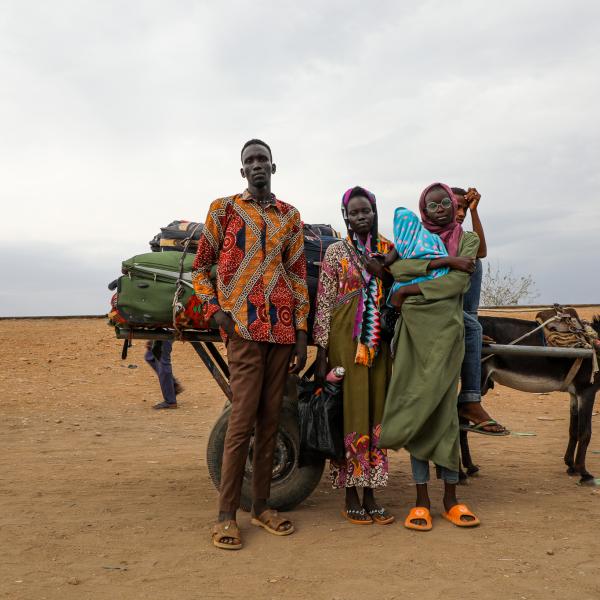
FAQ
Why is there a conflict in Sudan?
The conflict erupted between the Sudanese Armed Forces (SAF) and the Rapid Support Forces (RSF), two rival factions vying for power.
How many refugees have fled Sudan?
Approximately 3.7 million people have fled to neighbouring countries, in addition to the 8.9 million internally displaced people.
How is UNHCR helping in Sudan?
UNHCR provides life-saving aid (shelter, food, healthcare, hygiene supplies), protects refugee rights, and advocates for secure humanitarian access.